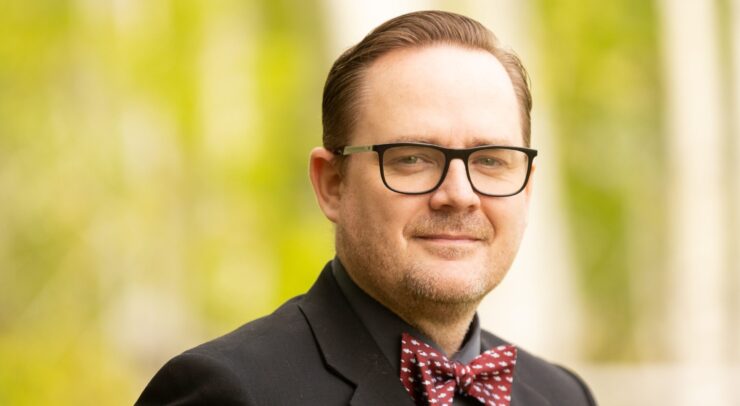Professor Elizabeth Kristjansson will hold the position for a three year term
Back in July, the University of Ottawa hired professor Elizabeth Kristjansson on a three-year deal to be the new university advisor on mental health and wellness. According to the press release from the University, “this new position is one of the [12] recommendations made in the recent preliminary report from the Advisory Committee on Mental Health and Wellness.”
“In the context of the COVID-19 pandemic, it is clearer than ever that we must proactively promote health and wellness throughout our community, and with each of these steps we enhance our capacity and commitment to doing so,” added the release.
As such, The Fulcrum sat down with professor Kristjansson to talk about all things mental health and how her role will benefit students in the future. Professor. Kristjansson’s answers have been edited for length and clarity.
The Fulcrum (TF): What led you down this path of education?
Professor Kristjansson (PK): [After a bachelor’s and master’s degree] I worked for about 10 years in the Department of Epidemiology on a longitudinal study of health and aging. And there I became passionate about epidemiology and I took a course in public health policy and there I learned about the fact that there are huge inequalities in the world … Especially in terms of health, between rich and poor, between Black and [Caucasian] between Indigenous and non-Indigenous and that kind of lit a passion in me. [So I wanted] to do my PhD [and] study inequalities.
(TF): What led you to becoming an advisor?
(PK): Last year was a horrible year. We lost [students] and every time we [received] one of those emails, most of us felt like we were being kicked in the stomach. It’s just unbelievable to lose a precious, brilliant life. It’s just unbelievable that someone came to that point and feeling that although we’re not responsible, we possibly could have helped more.
I had started [trying to help more] in my classes. [I began to] notice students who might be absent for no reason for a couple of weeks and writing them, emailing them, saying, ‘how are you doing?’. [Just] giving them the feeling someone cares.
[But] in February, a student came to me, he didn’t know me and I didn’t know him, but he must have known about me because he came and talked about his struggles with mental health and struggles with finding good care and finding care within the university. And he just spoke so passionately … I became very passionate about mental health and wellness and about trying to help the university in finding its way.
[Eventually] I contacted my Dean [Victoria Barham] … and I talked to her about my need to help. And I talked to her about this young man and his need to help and she suggested we approached Kevin Kee, who is leading this advisory committee. So we approached [him], and he’s very welcoming but said the committee had already been formed, but that he would gladly turn to us for advice and we could feel free to write him at any time.
So fast forward to May and the Committee kept doing its work (it’s excellent work, as far as I’m concerned, they did excellent work) and then I got an email from [Barham] saying ‘would you please think about becoming advisor on mental health and wellness for the university?’
They didn’t want me so much for my expertise in mental health, but for my ‘expertise in people,’ for my ability to bring a lot of people together and my strong belief in collaboration with everybody, building teams and also for my ability to talk honestly to people in power … so, I said ‘yes, I would consider exploring it’ and I talked to Jill Scott (Provost and vice-president, Academic Affairs) and we just hit it off. She is someone who really, really cares. She cares about the students, she cares about the staff and she cares about bringing the University forward in terms of its mental health.
TF: The biggest aspect of your role is to hold the University accountable. How does it feel to be that person and how will you be doing that?
PK: That’s a big question. President Frémont himself said, after I gave a presentation on where we were with recommendations, he said, ‘keep coming back, keep telling us the truth, keep holding us accountable.’
And so, I think it means, learning all that is going on at the University, there’s an enormous amount going on. There’s many really caring people, many people are trying to do their best, but there are gaps. So I think it means working with people who are working on mental health and others and working with the faculties to identify those gaps, where those gaps are and also recognizing where a synergy could exist …
I’m still in the learning stage and I probably always will be in the stage of learning, there’s so much going on at the University, there’s so much that needs to be done. But I think one of our big problems is communication. The fact that the University needs to communicate what it is doing, what it can do, what it can do better and what it can’t do.
So holding people accountable means always talking to people, always asking how they’re doing, what they’re doing. But it doesn’t mean pushing them. It means bringing things to their attention and being honest. I think always being honest and always being open to whatever people have to tell me and being honest about synthesizing that information and bringing it forward. I don’t have a whip, I don’t have much power, but I do have people listening to me.
TF: Physical health is often seen as more important than mental health. How do you suggest we bring mental health to the forefront of the conversation on health?
PK: [The University] is working on that … It’s a question of education, learning how to meet those standards, about the [Okanagan] Charter, and learning how to apply it. Learning how to work [mental health] into our everyday lives and in everything we do… it’s always thinking about not stressing other people out, it’s about caring for other people, caring for the well being of others.
[For] the University as I said, the administration, the prof[essors], the deans, everybody thinking about how will this affect people? How will this syllabus affect people? How can I make mental health the forefront of my teaching?
Not necessarily making any classes any easier, not giving people breaks, but being understanding and being respectful. Thinking about our evaluations and our expectations of students and how we can have clear expectations that don’t stress us and the students out.
TF: The University’s Preliminary Report mentions “supporting students leading or participating in mental health and wellness initiatives” as one of their recommendations. What does that look like for you?
PK: That means there are a lot of students who are passionate about mental health and about helping others … [for example] there was a standing committee on student wellbeing that had some students [present] but I’m working with a lot of other people to kind of reformulate this committee to have students on it. A diverse range of 12 students from diverse backgrounds, diverse faculties, diverse years, some prof[essors] and a dean or two, and then some people from counseling. And they’re going to be a steering group for what I do, so it’s really going to have meaning.
So that’s one thing. But then it’s also things like the graduate students in psychology, a few years ago, one committed suicide and it effected them all horribly, [and] they started a committee called ‘Initiative 1/5’ and it’s very active … Actually, they have created a resource booklet for graduate students … and [the University] is looking at it and trying to decide where it’s best used … [so] it means listening to groups like that.





